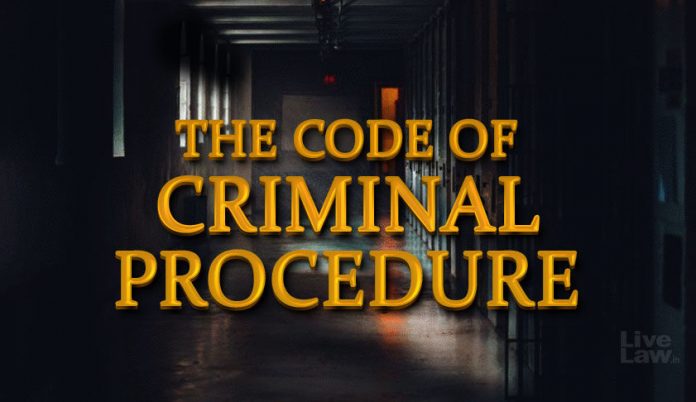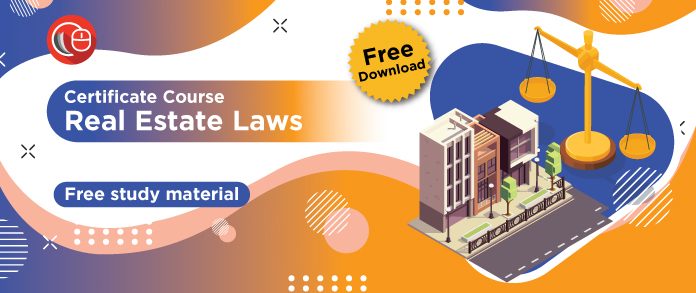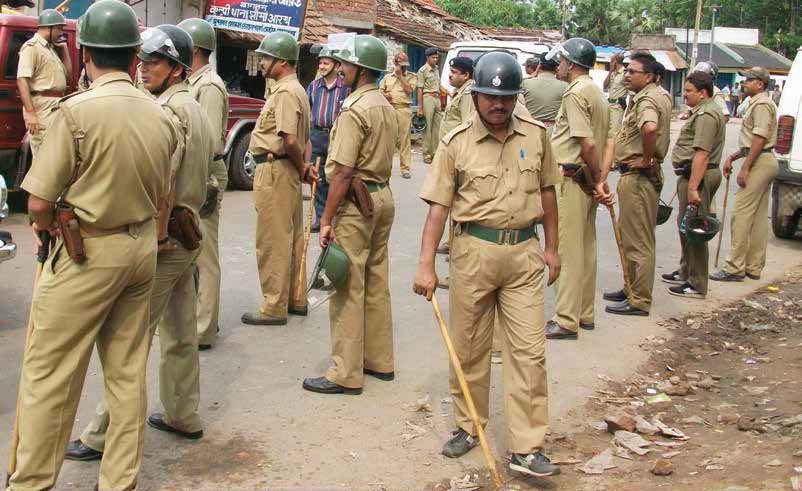This article is written by Vishwendra Prashant, a student pursuing BBA LL.B. from ICFAI University, Dehradun. This article discusses the provisions of Section 151 of CrPC, the conditions of arrests, and the constitutional validity of this Section. The article also highlights the concept of preventive arrests by the police.
This article has been published by Sneha Mahawar.
Table of Contents
Introduction
The 1973 Code of Criminal Procedure grants the police extensive powers. The police have powers to investigate, arrest and search, etc.
The Code provides punitive as well as preventive measures for crimes. However, it classifies the preventive measures under two heads.
- Magisterial actions (Chapters VIII and X of the Code); and
- Police actions (Chapter XI).
The former has quasi-judicial and quasi-executive powers, while the latter is purely executive.
The police have extensive powers to prevent the commission of cognizable offences (Sections 149–151 of the Code). They may arrest the offenders without any warrants for such offences. Section 149 enables the police to prevent the commission of such offences. If the police receive information about plans for the commission of such offences, they have to pass such information to their superior officers or any other officers (Section 150). After that, if they cannot prevent the offences, they arrest the offenders who were planning them (Section 151). The maximum period of detention under this section is 24 hours only unless any other sections or laws require or authorise further detention.
Provisions under Section 151 CrPC
Section 151 is a safeguard against cognizable offences. As per Section 151(1), if the police come to know that some persons are planning to commit any such offences may arrest them without warrants or orders of the Magistrate. Here, the apprehension or knowledge of such offences is compulsory.
Moreover, Section 151(2) provides that the police must not hold the arrestee in custody for more than 24 hours. This period may prolong if any provisions/ laws or orders of the Magistrate authorises. The police have no power to discharge such arrestees on bail.
Such arrestees have to undergo all procedures of arrest without warrants. In other words, they have to appear before the Magistrate within 24 hours. The police also have to notify them of the grounds of arrest.
Illustrations:
- Let’s say that A, B, and C are planning to commit an offence of theft at X’s house. Z, a police officer, comes to know about this planning. He informs his subordinate Y to prevent the offence. Y concludes that he can prevent the commission of theft only by arresting the offenders. Y arrests the above-mentioned offenders.
- Three friends X, Y, and Z, were sitting in the room and talking to each other. M, a police officer enters their house and arrests them. They appear before the Magistrate and he finds that M arrested them without any knowledge of the plan of offence. Such arrests are illicit.
Conditions of arrest under Section 151
These are the conditions of arrest under the section:-
- There must be some plan to commit cognizable offences;
- The police must know about the same.
- The persons to be arrested must involve in the plan; and
- The police must believe that they can prevent such offences only by arresting the persons.
Legitimacy of Section 151
The concept of preventive measures is the subject of controversy because instances of police abusing their powers under the guise of preventive measures are often reported.
The National Police Commission suggests that about 60% of arrests are unjustified. Such arrests are not related to crime prevention. It has led to the use of 43.2% of the total expenditure over the arrestees.
Numerous petitions are filed before the Supreme Court of India to challenge the constitutional validity of Section 151.
In Joginder Kumar v. State of U.P. (1994), the Court held that arresting individuals without any reasonable cause is an infringement of their right to life and personal liberty.
In Ahmed Noormohmed Bhatti v. State of Gujarat and Ors. (2005), the Supreme Court laid down some guidelines ensuring that the Section is not arbitrary, unreasonable, or infringing on the Fundamental Rights under Articles 21 and 22 of the Constitution.
In Medha Patkar v. State of M.P. and Anr. (2007), a mob of aggrieved people was protesting and demanding rehabilitation measures due to a dam project. They had no intention or plans to commit cognizable offences. Regardless of this, the police arrested them under Section 151 of the CrPC. The police sent those people to jail. The Court held that it was a violation of Article 21. The aggrieved people got compensation.
In Rajender Singh Pathania & Ors. v. State of NCT of Delhi & Ors. (2011), the Supreme Court held that this Section provides conditions that the police must consider before arrest. The Court further held that the police may arrest only if they know the plan of commission of cognizable offences. Otherwise, they are liable for the violation of the above-mentioned articles.
However, the victims of unjustified arrests seek these reliefs:
- Constitutional remedies;
- Compensations;
- Penalty against the police.
Judicial pronouncements related to Sec. 151 CrPC
Jagdish Chander Bhatia v. State, 1983 CrLJ NOC 235 (Del)
The Court held that the plan to commit cognizable offences is mandatory for arrest under Section 151.
Smt. Nilabati Behera Alias Lalit Behera v. State of Orissa and Ors. (1993)
In this case, the police arrested Nilabati Behera’s son for the allegation of theft. They detained him, and later his mother found his dead body on railway tracks. Several injuries were on his body, as it was a custodial death. The police contended that Suman escaped from custody at night. They further contended that Suman died because of a train accident.
The Court did not find any evidence that could show that the police were trying to locate Suman. However, the Supreme Court compensated Nilabati and held that the police were liable for Suman’s death.
Sathi Sundaresh S/O Somayya Sundaresh v. The State P.S.I. of Moodigere Taluk (2007)
The Karnataka High Court held that the detention of the persons (arrestees as per Section 151) in judicial custody for 6 days without a hearing is illegal.
S. Nambi Narayanan v. Siby Mathews & Others Etc. (2018)
The Supreme Court has defined the remedies available to persons who are victims of unlawful arrests. The Court held that such victims may seek these remedies:
- Compensations;
- Legal actions against arresting authorities.
Aldanish Rein v. State of NCT of Delhi & Anr. (2018)
The Delhi High Court set a few guidelines to prevent the misuse of Section 151 of the Code. These are a few guidelines set by the Court:
- The Delhi State Legal Services Authority would conduct training for the ACPs, of different areas and Special Executive Magistrates. The training would help them in exercising powers under the Section.
- The SHO will verify the surety bonds before releasing the accused on bail.
- The Special Executive Magistrates must ask the arrestees whether the Police have informed them regarding the grounds of arrest.
Shiv Kumar Verma and Anr. v. State of U.P. and 3 Others (2020)
The Allahabad High Court held that public servants should not misuse their powers by harassing citizens. The Court directed that the State Government has to compensate the citizens for unlawful detention.
Conclusion
Section 151 deals with preventive arrests. If the police believe that they can prevent cognizable offences, they should try to prevent them before arresting the persons. If the persons become successful in committing the offences, the police would arrest them under Section 41 of the Code, not Section 151.
A mere apprehension of a breach of the peace is not the subject of this Section. Protesting by the people on the roads doesn’t necessarily mean that they are planning to commit cognizable offences. Arresting them on the ground of disturbance of peace, under the section, is illicit.
If the police don’t know anything about plans for the commission of the offences, arrests under this section are illegal. Therefore, the police must arrest only when they have the proper information.
However, illegal arrests and detentions cause harm to the reputation and self-esteem of the person. Therefore, the police should not arrest unless it is necessary.
Frequently Asked Questions (FAQs)
What are the objectives of Section 151?
These are the objectives of this Section:
- To prevent the commission of cognizable offences; and
- To maintain public peace and morals.
- What are the exceptional cases under which Section 151 doesn’t apply?
These are the exceptional cases under which the section doesn’t apply:
- If the persons commit cognizable offences; or
- If the police have mere doubt that some persons are about to commit the offences; or
- If the police don’t have proper knowledge regarding the plans for the commission of the offences.
- What are the grounds on which individuals may challenge the arrest under this Section?
These are the grounds on which individuals may challenge the arrest under this Section:
- If the arrests or detentions are unlawful;
- If there are violations of individuals’ fundamental rights;
- If the police detain the individuals for more than 24 hours.
- In which court do the arrestees have to appear as per Section 151?
The arrestees have to appear before the Magistrate’s Court.
What is the role of the Magistrates in the Section?
Magistrates decide whether they should keep the arrestees in judicial or police custody.
Are there any provisions for the bail of such arrestees under the Section?
No, Section 151 does not talk about the bail of the arrestees. It is at the discretion of the Magistrate whether they should release the arrestees on bail bond as per other provisions of CrPC.
How do the police misuse the Section?
The police may misuse the Section in the following ways:
They arrest the persons for gaining monetary benefits and other valuable properties from family members of arrestees. If arrestees don’t fulfill the demands of the police, they give fake reports to the Court.
The Police make false claims against the arrestees at the request of their opposing parties.
The Police intentionally make false cases against the persons for political reasons.
They intentionally make fake case reports against the persons to extort information pertinent to other investigations. Moreover, the Police may submit those reports before the Court.
What are the remedies available to the victims of unlawful arrests and detentions?
These are the remedies for such victims:
- The victims may challenge such arrests and detentions by filing Revision Petitions under Section 397 of the Code of Criminal Procedure, 1973.
- Moreover, they may file cases against the police who have wrongfully arrested them. Here, Section 166 of the Indian Penal Code, 1860 applies.
- If the police prepare fake documents intending to cause harm to the persons, they may take the help of Section 167 of IPC.
- If the police prepare fake reports against the persons and submit them before the Court. The police are liable under Section 219 of IPC.
References
- https://blog.ipleaders.in/power-of-police-crpc/#:~:text=Section%20151%2C%20Code%20of,offence%20cannot%20be%20otherwise%20prevented.
- https://blog.ipleaders.in/preventive-action-police-code-criminal-procedure/.
- https://deliverypdf.ssrn.com/delivery.php?ID=862024094122117089095084119003001007102003037074039062086007069064098084028067111031038026119061045028111109030010087090091021117075046037076112081084111066102126025001089067126025124029080010120093118093100097027085026065080029007103068003027072007083&EXT=pdf&INDEX=TRUE.
- Dr. Dewakar Goel, Police Investigation (A Roadmap to arrest criminals for trial), 1st Edition, 2022.
- https://legislative.gov.in/sites/default/files/A1974-02.pdf.
- https://primelegal.in/2021/06/18/any-person-who-is-under-illegal-detention-by-any-officer-of-the-state-government-shall-be-paid-compensation-by-the-state-government-allahabad-high-court/.
- Ratanlal & DhirajLal, The Code of Criminal Procedure, 23rd Edition.
Students of Lawsikho courses regularly produce writing assignments and work on practical exercises as a part of their coursework and develop themselves in real-life practical skills.
LawSikho has created a telegram group for exchanging legal knowledge, referrals, and various opportunities. You can click on this link and join:
Follow us on Instagram and subscribe to our YouTube channel for more amazing legal content.
 Serato DJ Crack 2025Serato DJ PRO Crack
Serato DJ Crack 2025Serato DJ PRO Crack













 Allow notifications
Allow notifications


